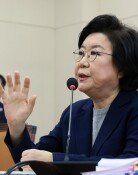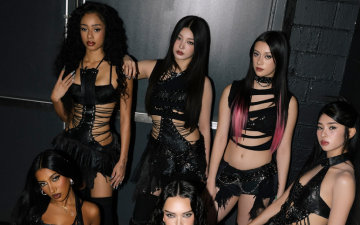[Editorial] No Covering-Up of Suspicions Over Haengdam Island and Russian Oil Field Development Projects
[Editorial] No Covering-Up of Suspicions Over Haengdam Island and Russian Oil Field Development Projects
Posted May. 30, 2005 03:34,
No suspicions have been cleared regarding the Haengdam Island development project or the Russian oil field development project. With the Board of Audit and Inspections (BAI) investigations into the projects under way, Cheong Wa Dae tried in haste to escape from speculation, but its inconsistent explanations are raising even more suspicions. The prosecution suggests that it might exclude the key figures of the suspicions over the Russian oil field development from being put into prison, but its intention is widely doubted.
Last weekend, the presidential office explained it accepted the resignations of Chairman Moon Jeong-in of the Presidential Committee on the Northeast Asian Cooperation Initiative (PCNACI) and Vice Secretary Jung Tae-in of the National Economic Advisory Council (NEAC) as their support for the Haengdam Island development project was not appropriate. It also criticized PCNACI for wrongly perceiving the Haengdam Island development plan as a pilot project for the Southwest Coast Development Project (S Project) and excessively relying on a certain personPresident Kim Jae-bok of the Haengdam Island Development Corporation (HIDC)in pushing forward with this project.
Nevertheless, the Presidential Office had initially announced it once supported the Haengdam Island project, and that it forged ahead with attracting capital from Singapore for developing the southwest coast. It added that President Roh Moo-hyun asked for cooperation of the Singapore government in last Novembers summit meeting and even sent a presidential letter to the Singapore government.
Against such a backdrop, it seems awkward that the Presidential Office is suddenly passing on all the responsibility to the PCNACI. It announced it would determine whether or not to accept the resignations of the two officials after the BAI investigations were over, but it changed course the next day, raising suspicions that it was trying to cut off the tail. Furthermore, it was also revealed that the PCNACI demanded the suspension of the ongoing construction of the Navys submarine communication system in Haenam, South Jeolla Province last year, citing that the project overlapped with the S Project. All things considered, how can one believe that this was the PCNACIs independent decision?
Probing into the Russian oil field development, the prosecution summoned Rep. Lee Kwang-jae and Lee Ki-myung for questioning and is spreading the word that it is currently impossible to send them to prison. Even the facts revealed during the investigations alone show that Lee Kwang-jae was apparently linked in several ways with Jeon Dae-wol, former president of the Korea Crude Oil (KCO), which pushed ahead with the oil field development plan on the working level, and Huh Moon-seok, who fled the country. The prosecutions methods of investigating Lee Ki-myung were also special.
The prosecution, however, is seeing how the wind blows and trying to wrap up the investigations by indicting Kim Se-ho, former vice minister of construction and transportation. In this way, prosecutors will hardly win the public trust. The Board of Audit and Inspection (BAI) also faces the same situation. It should stake its reputation on its investigations into the Haengdam Island development project.




![하버드 의사가 실천하는 ‘뇌 노화 늦추는 6가지 습관’ [노화설계]](https://dimg.donga.com/c/138/175/90/1/wps/NEWS/IMAGE/2026/01/22/133210626.3.jpg)


